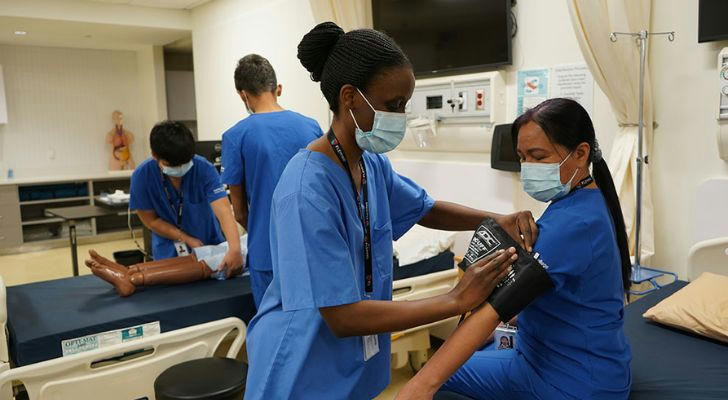📚 RPN to BScN Program Ontario: A flexible pathway for nursing career advancement
RPN to BScN bridging programs | RPN to RN | Balance work and study
Want to advance from RPN to RN?
Through Ontario’s RPN to BScN bridging programs, you're eligible to apply to the CNO to take the registration exam to become a registered nurse (RN). This step not only brings higher pay and leadership opportunities but also provides access to broader career options

Why Advance from RPN to RN? Key Advantages
✅ Higher Income and Expanded Opportunities
- RPN: In Ontario, RPNs earn an average of $40/hour (range: $28–$50).
- RN: Registered Nurses earn an average of $48/hour (range: $34–$60+), with opportunities for overtime, specialty pay, and advancement into leadership roles.
✅ Wider Scope of Practice
- RPN: Typically care for stable patients and perform fundamental nursing duties.
- RN: Can assess complex patients, create care plans, administer advanced medications (including IV therapy), and supervise healthcare teams.
✅ Leadership & Career Mobility
Becoming an RN opens doors to:
- Nurse Practitioner (NP) studies
- Public health and research roles
- Hospital unit leadership and management
- BScN and graduate-level nursing education
✅ Professional Recognition
RNs are recognized as full-scope professional nurses with advanced clinical authority, decision-making power, and high respect in the healthcare system.
How to Transition from RPN to RN
Through Ontario’s RPN to BScN bridging programs
Graduates of an approved BScN program will be eligible to apply to CNO to write the registration exam to qualify for practice as an RN.
- RPN to BScN pathway consists of six courses, including:
- Scholarly Writing
- Nursing Informatics
- Health Assessment
- Microbiology (1/2 course)
- Biochemistry & Pathophysiology (1/2 course)
- Transition to the Role of RN (note: the preceding 5 courses are pre-requisites for this course)
- Financial Support Options
RPNs enroled in the RPN to BScN pathway may be eligible for Tuition Subsidy through the Bridging Educational Grant in Nursing (BEGIN) program offered by the Registered Practical Nurses Association, also known as WeRPN.
How to Start Your RPN to BScN Application
1️⃣ Confirm Eligibility
- Must be a Canadian citizen or permanent resident
- Have RPN work experience within the last 5 years
2️⃣ Search Bridging Programs
- Visit Ontario universities
- Look for “RPN to BScN” or “BScN Bridging” programs(Pass the CNO test to become a RN)
3️⃣ Choose a College
- Select an accredited public college
- Confirm course structure and clinical placement arrangements
4️⃣ Apply Online
- Follow the college’s official online application process
- Submit transcripts, certificates, and work verification
5️⃣ Await Admission & Enroll
- Once admitted, follow instructions for registration and course selection
Frequently Asked Questions (FAQ)
Q1: Can I keep working as an RPN while studying?
🟢 Yes. Many programs are part-time or online, designed for working nurses.
Q2: How long does it take to bridge from RPN to BScN?
🟢 Typically 2–3 years for part-time learners; full-time students may complete faster.
Q3: Do I need to repeat all nursing courses?
🟢 No. Your RPN education gives you credit equivalencies, so you skip foundational content.
Q4: Will I get hands-on clinical placements?
🟢 Yes. BScN programs include supervised clinical rotations to meet RN licensing requirements.
Conclusion: Is This Path Right for You?
If you are an RPN looking to:
- Increase your income and long-term stability
- Take on leadership and advanced practice opportunities
- Gain greater professional recognition
- Expand your career potential in nursing
Then the RPN → BScN bridging program is your ideal pathway.
🌟 You’ve already built a strong foundation as an RPN. Now it’s time to take the next step and become an RN — shaping the future of healthcare while advancing your own career.

